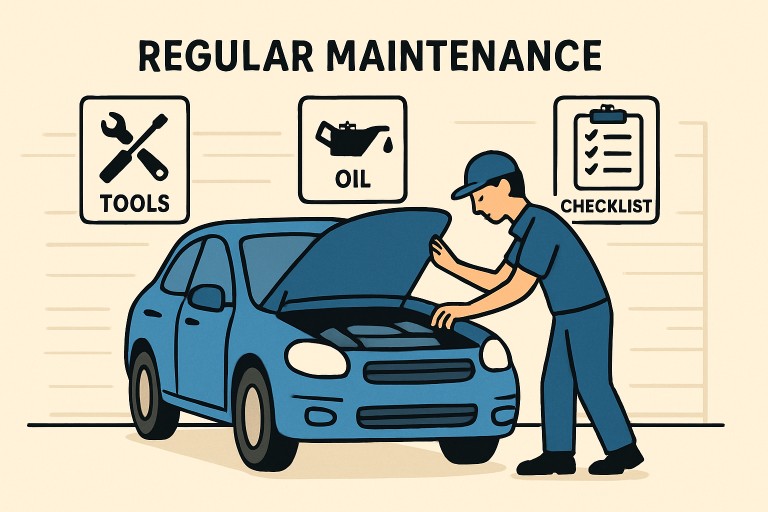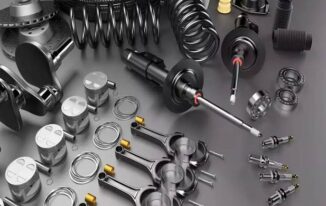Key Takeaways:
- Regular maintenance prevents costly repairs and enhances vehicle longevity.
- Routine checks improve safety and fuel efficiency.
- Consistent upkeep preserves your car’s resale value.
Introduction
Owning a car represents a significant financial commitment, and protecting this investment demands proactive care. Far beyond keeping your vehicle running day to day, regular maintenance profoundly impacts how safely and efficiently your car performs over the years. Without routine servicing, cars are vulnerable to breakdowns and steep repair bills. Prioritizing maintenance is one of the smartest moves to maximize your vehicle’s lifespan and reliability. Learn more about professional maintenance services and how consistent care can offer long-term value for your automobile.
Staying current with maintenance isn’t just about preventing mechanical failures—it safeguards your peace of mind whenever you take the wheel. Drivers who adhere to a regular maintenance schedule often experience smoother rides, better performance, and an extended life for their vehicles, minimizing surprises and ensuring the car is always at its best.
Preventing Costly Repairs
One of the greatest advantages of routine maintenance is taking action before problems arise. Scheduled oil changes, brake inspections, and fluid checks may seem simple, but they are instrumental in pinpointing small issues before they balloon into critical failures. For example, changing your engine oil at recommended intervals keeps components properly lubricated, drastically reducing the risk of engine damage and expensive repairs. Similarly, replacing worn brake pads on schedule helps you avoid brake system damage, which can be much pricier to address later.
Potential problems caught during regular check-ups—such as leaks or component wear—can be managed quickly and with less expense. By addressing these needs promptly, you preserve your car’s integrity and prevent cascading failures that can lead to significant repair costs. According to Consumer Reports, appropriate maintenance can help drivers avoid the frustration and financial burden of surprise breakdowns and repairs.
Enhancing Safety
A safe driving experience starts with a well-maintained vehicle. Critical systems, including brakes, lights, steering, and tires, must be routinely inspected to ensure reliable operation. Maintenance visits often reveal subtle warning signs that drivers may overlook, such as uneven tire wear, dimming headlights, or a spongy brake pedal. Addressing these issues immediately keeps all safety features functioning as designed and minimizes the likelihood of accidents caused by preventable mechanical failures.

Improving Fuel Efficiency
Maintenance helps your vehicle last longer and saves you money at the pump. Issues such as dirty air filters, old spark plugs, or improperly inflated tires can drastically reduce your car’s fuel economy. By keeping all systems in optimal condition, you ensure your engine doesn’t have to work harder than necessary, which translates to fewer stops for gas and lower annual fuel expenses. The U.S. Department of Energy notes that properly tuning your engine can improve gas mileage by an average of 4% and fixing a serious maintenance issue can improve mileage by as much as 40%.
Extending Vehicle Lifespan
With meticulous care, modern cars can easily cross the 200,000-mile mark. Essential systems such as the engine, transmission, and suspension demand regular attention to function efficiently year after year. Replacing fluids, changing filters, and inspecting belts or hoses at recommended intervals prevents minor wear from developing into major component failures. This long-term approach ensures your car remains a dependable part of your daily life and routine for as long as possible.
Longevity is vital for drivers planning to keep their cars well beyond a single loan or lease cycle. Consistent check-ups delay the need for a costly replacement and minimize disruptions in daily life by reducing the chance of inconvenient, unexpected breakdowns.
Preserving Resale Value
Maintenance documentation can be a powerful tool if you ever plan to sell or trade your vehicle. Prospective buyers consistently value a well-maintained car with a detailed service history, knowing they are less likely to face unexpected repairs after purchase. Such vehicles draw higher offers at dealerships and in private sales alike. Maintaining and recording your vehicle’s care is a straightforward way to protect its residual value and ensure you realize the highest possible return when upgrading. Experts from Consumer Reports also emphasize the impact of maintenance on resale and trade-in values.
Adhering to Warranty Conditions
For newer vehicles under warranty, ignoring recommended maintenance can have expensive consequences. Automakers often require proof of timely services—such as oil changes and brake inspections—to honor claims. Failing to maintain your car as prescribed may void parts of or your entire warranty, leaving you responsible for repairs that could have otherwise been covered. Always consult the vehicle’s manual or a dealer’s maintenance guide to keep your warranty protections intact.
Early Issue Detection
Regular check-ups are windows of opportunity to spot problems before they become emergencies. During routine service appointments, mechanics use diagnostic tools and visual inspections to uncover developing issues such as fluid leaks, abnormal tire wear, or electronic malfunctions. Addressing these warning signs immediately prevents costly complications and contributes to safer, more predictable driving experiences.
Final Thoughts
Prioritizing regular maintenance is essential for the health and value of your car. By keeping up with recommended service intervals, you’ll avoid high repair costs, enjoy a safer drive, and preserve your vehicle’s performance and value. Don’t overlook the importance of routine care—schedule your next service and make maintenance a permanent part of your car ownership journey. A little foresight today ensures years of reliable, stress-free driving tomorrow.


